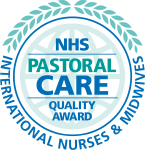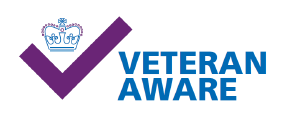Job summary
- Main area
- Cardiology
- Grade
- Band 6
- Contract
- Permanent
- Hours
- Full time - 37.5 hours per week
- Job ref
- 287-AMED-69-25
- Employer
- Liverpool University Hospitals NHS Foundation Trust
- Employer type
- NHS
- Site
- LUHFT - Royal
- Town
- Liverpool
- Salary
- £37,338 - £44,962 per annum
- Salary period
- Yearly
- Closing
- 14/05/2025 23:59
Employer heading

STP Trainee - Cardiology
Band 6
Job overview
This is an exciting opportunity for an enthusiastic person to join the team at Cardio-Respiratory Unit at the Royal hospital as a trainee healthcare science.
The department will fund a 3 year masters programme to equip the individual to become an accredited healthcare science practitioner.
The department will support your training in all areas of echocardiography, however we are actively seeking applicants who wish to specialise in Cardiac Rhythm Management/ Pacing on successful completion of their STP programme.
Main duties of the job
The STP is a three-year integrated post-graduate programme including a commissioned master’s degree in clinical science and completion of a work-based training portfolio plus a synoptic final assessment. On completion, the learner can apply to the Health and Care Professions Council for registration as a Clinical Scientist.
University time will be block release to attend scientific lectures to support achievement of the academic components whilst the work-based learning element will all be at Liverpool University Hospitals NHS Foundation Trust.
We are a forward thinking department who offer a wide range of cardiac diagnostic procedures. As a trainee with us you will have the opportunity to rotate through all areas of cardiac physiology as well as complete short rotations in some other healthcare science disciplines such as respiratory and vascular.
This position is for a permanent post with the initial 3 years funded by NHS England.
You are encouraged to read the guidance on applying, available below: Scientist Training Programme
Working for our organisation
Liverpool University Hospitals NHS Foundation Trust comprises Aintree University Hospital, Broadgreen Hospital & Royal Liverpool University Hospital. We are part of NHS University Hospitals of Liverpool Group, formed on 1 Nov 2024 from the coming together of LUHFT and Liverpool Women’s NHS Foundation Trust. The Group was born from a shared aim to improve the care we provide our patients. UHLG is one of the largest employers in the region, with over 16,800 colleagues dedicated to caring for our communities - from birth and beyond. For the 630,000 people across Merseyside, we are their local NHS. We provide general and emergency hospital care, alongside highly specialised regional services for more than two million people in the North West. Aintree University Hospital is the single receiving site for adult major trauma patients in Cheshire and Merseyside and hosts a number of regional services including an award-winning stroke facility. Broadgreen Hospital is home to elective surgical, diagnostic and treatment services, together with specialist patient rehabilitation. Liverpool Women’s Hospital specialises in the health of women and babies, delivering over 7,200 babies in the UK’s largest single site maternity hospital each year. The Royal Liverpool University Hospital is the largest hospital in the country to provide inpatients with 100% single bedrooms and focuses on complex planned care and specialist services.
Detailed job description and main responsibilities
The post holder will be expected to undertake a range of demanding scientific and clinical functions initially under supervision, as well as occasional duties in response to specific elements of the curriculum.
A major part of the training and development will take place within a designated organisation (linked to a specific scientific department) and is integrally linked to the knowledge and applied learning that forms part of the nationally commissioned academic master’s programme.
Post holders will also be expected to undertake mandatory training as deemed necessary by their host department.At all times the Trainee Healthcare Scientist is expected to work within standard operating policies and procedures of the host department and NHS organisation and adhere to high standards of professionalism, health and safety, risk reduction, confidentiality, patient care and dignity, and respect for equality and diversity as set out in the NHS Constitution.
The trainee will undertake the full training programme in order to progress through the modules of the training scheme. In so doing they will learn how to perform and interpret clinical and specialist scientific processes underpinned by theoretical and applied knowledge and practical experience and will learn how to:
1. Carry out complex scientific and clinical roles, including those working directly with patients
2. Analyse, interpret and compare investigative and clinical options
3. Make judgements, including clinical and differential judgements, involving complicated facts or situations that impact on patients
4. Initiate and undertake innovation, improvement and R&D and be involved in the education of healthcare science trainees and other learners in the workplace .
They will be expected to complete all work based training and assessment alongside the academic master’s course to exit the programme with eligibility for registration with the Health and Care Professions Council (HCPC) and use of the protected title of Clinical Scientist. In addition, they will be expected to undertake work based experience to enable them to communicate complex technical, scientific and sensitive information to colleagues within their department in both verbal and written forms.
Trainees must meet the HCPC's standards for training, professional skills, behaviour and health
Person specification
Qualifications
Essential criteria
- Applicants must have an honours degree (1st or 2.1) in a pure or applied science relevant to the specialism for which they are applying
- Applicants must have an honours degree (1st or 2.1) in a pure or applied science relevant to the specialism for which they are applying
Desirable criteria
- For all candidates evidence of research experience, e.g. in the form of a higher degree or equivalent evidence of scientific and academic capability, is considered desirable
Knowledge
Essential criteria
- Have an understanding of quality control and management assurance in a science or work based context
- Has an understanding of the role of their chosen specialism in healthcare and disease and its application in a healthcare setting
- Self aware and flexible enough to adopt a range of evaluative or empathising listening styles according to the needs of the listener and the situation
Skills
Essential criteria
- Ability to design research investigations and experiments
- Ability to analyse and assess scientific, technical and medical literature
- Ability to make judgements, including clinical judgements involving facts or situations that impact on patients
- Ability to develop proficiency in the performance of routine and complex techniques currently in use where they are training (ability to follow Standard Operating Procedures accurately) and the ability to develop and validate new techniques
- Able to identify problems associated with scientific equipment, inappropriate testing, incompatible results and to investigate these, plan corrective action confirming appropriateness with senior colleagues and follow up. (Ability to use, maintain and troubleshoot scientific equipment.)
- Good IT skills and knowledge of common computing packages for word processing, spreadsheets, presentation packages and databases
- Ability to analyse complex information comprising laboratory or workshop data, images and clinical details. Knowledge acquired through study and experience to formulate appropriate advice and judgements
- Excellent interpersonal and communication skills, both writing and speaking in English language in order to: • explain analytical, scientific and clinical aspects of the work to a variety of people including scientific colleagues, clinical professionals, service managers and patients and to listen to their needs. • make formal presentations to groups of colleagues
- Good active listening skills to build rapport with listener to encourage an open discussion
- Ability to work autonomously in the planning and execution of their own work and under the guidance of their Departmental Supervisors. Flexibility to acquire the skills to organise, plan and monitor the workload of others
- Demonstrable ability to lead others E E E E July 2021 Under guidance develops good interpretative skills in the formulation of advice to multi-disciplinary team members on diagnosis and appropriate treatment of patients
- Ability to handle patient samples, hazardous reagents and chemicals in a safe manner in accordance with Health and Safety regulations
- Ability to support patients (or their carers) including those with a range of acute or chronic clinical conditions and disabilities in a variety of healthcare settings
- Ability to work to schedules (emotional resilience and ability to prioritise and plan work)
Other
Essential criteria
- A committed, in depth interest in scientific practice and its application to direct clinical care of patients in a clinical environment
- Effective team worker, willing to adopt a role working in collaboration with others
- Highly developed co–ordination skills with good dexterity and hand-eye co-ordination and those skills required for the performance of fine analytical techniques
- Ability to meet the travel requirements of the training role and the clinical rotations
Applicant requirements
This post is subject to the Rehabilitation of Offenders Act 1974 (Exceptions) Order 1975 (Amendment) (England and Wales) Order 2020 and it will be necessary for a submission for Disclosure to be made to the Disclosure and Barring Service.
Documents to download
Further details / informal visits contact
- Name
- Adam Worthington
- Job title
- Deputy Head of Department
- Email address
- [email protected]
- Telephone number
- 0151 706 2712
- Additional information
Hannah Spencer ([email protected]) - Education lead
List jobs with Liverpool University Hospitals NHS Foundation Trust in Health Science Services or all sectors







